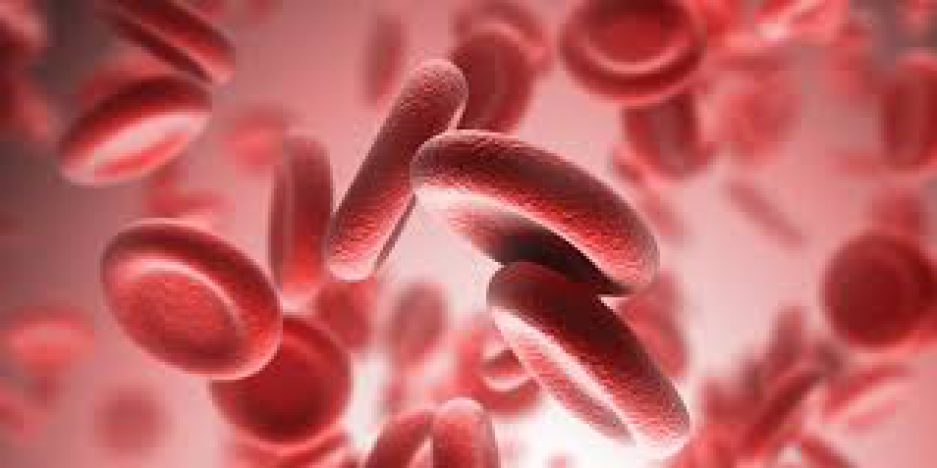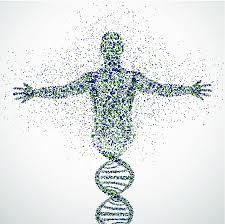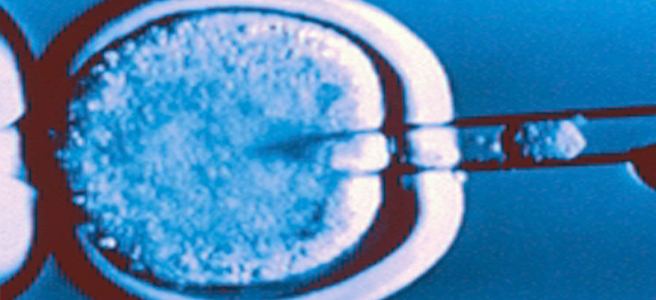Author: hematologiasite
FELICIDADES A NUESTRO COMPAÑERO:
National Academy of Medicine Elects 85 New Members
The National Academy of Medicine (NAM) today announced the election of 75 regular members and 10 international members during its annual meeting. Election to the Academy is considered one of the highest honors in the fields of health and medicine and recognizes individuals who have demonstrated outstanding professional achievement and commitment to service.
“This distinguished and diverse class of new members is a truly remarkable set of scholars and leaders whose impressive work has advanced science, improved health, and made the world a better place for everyone,” said National Academy of Medicine President Victor J. Dzau. “Their expertise in science, medicine, health, and policy in the U.S. and around the globe will help our organization address today’s most pressing health challenges and inform the future of health and health care. It is my privilege to welcome these esteemed individuals to the National Academy of Medicine.”
New members are elected by current members through a process that recognizes individuals who have made major contributions to the advancement of the medical sciences, health care, and public health. A diversity of talent among NAM’s membership is assured by its Articles of Organization, which stipulate that at least one-quarter of the membership is selected from fields outside the health professions — for example, from such fields as law, engineering, social sciences, and the humanities. The newly elected members bring NAM’s total membership to 2,178 and the number of international members to 159.
Established originally as the Institute of Medicine in 1970 by the National Academy of Sciences, the National Academy of Medicine addresses critical issues in health, science, medicine, and related policy and inspires positive actions across sectors. NAM works alongside the National Academy of Sciences and National Academy of Engineering to provide independent, objective analysis and advice to the nation and conduct other activities to solve complex problems and inform public policy decisions. The National Academies of Sciences, Engineering, and Medicine also encourage education and research, recognize outstanding contributions to knowledge, and increase public understanding. With their election, NAM members make a commitment to volunteer their service in National Academies activities.
Elias Campo, M.D., Ph.D., research director and professor of anatomic pathology, Hospital Clinic of Barcelona, University of Barcelona; and director, Institute of Biomedical Research August Pi i Sunyer, Barcelona, Spain.
For his groundbreaking discoveries regarding the molecular pathogenesis of many Bcell neoplasms including chronic lymphocytic leukemia, mantle cell lymphoma, diffuse large B-cell lymphoma and plasmablastic lymphoma.
Felicidades a todo tu equipo, manteniendo bien alto el pabellón de la especialidad de Hematologia
Dr Jesús Alcaraz Rubio
LINK CURSO TERAPIA REGENERATIVA DE LA UNIVERSIDAD INTERNACIONAL MENENDEZ PELAYO:
Estimados compañeros, tal y como os comenté con anterioridad, os adjunto el link del curso de terapia regenerativa con factores de crecimiento plasmático, organizado por la universidad Internacional Menendez Pelayo.
El curso es online, aunque tenga una pequeña parte presencial que no es obligatoria. En la pagina de la universidad se habilitará un enlace para descargar temario y un mail de tutorías.
Para obtener la acreditación final y titulo del curso es obligatorio superar el test que se colgará en la pagina de la universidad
Espero que sea de interés para todos
Un cordial saludo
Dr Alcaraz.
EVENTO DE INTERES!!!
Estimados compañeros, pronto estará disponible en la plataforma de la Universidad Internacional Menéndez Pelayo el “I curso de actualización en el manejo de los factores de crecimiento plasmático”.
Se ha modificado la estructura del mismo para su realización online con un examen final de acreditación que se podrá descargar en la misma plataforma. El curso dispondrá de tutoría a través de un enlace mail de la propia universidad.
La fecha de realización será desde el día 19 de Noviembre de 2018 hasta el 18 de diciembre de 2018, con un coste aproximado de 100 euros.
En el momento que el curso esté disponible en la web de la universidad, enviaremos nota informativa.
Un abrazo a todos.
CURSO DE ACTUALIZACION EN MEDICINA REGENERATIVA CON FACTORES DE CRECIMIENTO PLASMATICO, ORGANIZADO POR LA UNIVERSIDAD INTERNACIONAL MENENDEZ PELAYO.
Estimados colegas, os anuncio la apertura de inscripción del curso sobre “actualización en terapia regenerativa con factores de crecimiento plasmático”, organizado y acreditado por la universidad internacional menendez pelayo y que se realizará los próximos días 18 a 25 de septiembre de 2018 en el aula del hospital quirón salud murcia. Supone un riguroso e intensivo curso sobre una biotecnología cada vez más en auge con multitud de aplicaciones clínica. Haremos un abordaje científico objetivo desde la historia de la misma, hasta las definiciones fisiológicas de los contenidos celulares y protéicos, pasando por las técnicas más utilizadas en la literatura científica, preparación del paciente, contraindicaciones, indicaciones médicas, etc.
Animaros aapuntaros.
aquí os dejo el link:
RECONOCIMIENTO DR ALCARAZ
Una terapia esperanzadora?
Recientemente, la FDA ha aprobado la terapia génica de manipulación de Linfocitos T (CAR-T), para el tratamiento de la Leucemia aguda linfoblástica B refractaria en pacientes jóvenes. Efectivamente, un gran adelanto terapéutico para este grupo de población con escasas opciones curativas tras la recaída de esta enfermedad, debido a la agresividad de la misma, generalmente asociada a alteraciones cromosómicas que le confieren mal pronóstico y sobre todo a la dificultad de encontrar un donante de progenitores hematopoyéticos HLA compatible.
Esta terapia prometedora podría ser extensible a otras patologías hematológicas como ciertos tipos de Linfoma no Hodgkin de alto grado e incluso al Mieloma múltiple refractario o en recaida tras las terapias convencionales.
Gracias al grupo de investigación de la universidad de Pensilvania, a día de hoy esta terapia es posible.
En un principio se ha aprobado este tratamiento para pacientes entre 2 y 25 años, seguido de 2 ciclos de Tocilizumab (Actemra), con una tasa de remision completa cercano al 65% segun los ensayos clínicos iniciales, aunque con un periodo de seguimiento relativamente corto. (tan solo 3 meses).
Pero como no todo puede ser bonito, la industria farmacéutica en este caso Novartis se ha encargado de comercializar esta terapia con un coste por paciente que ronda entre los 400.000 a 600.000$, eso sí comprometiendose a sufragar los gastos del paciente en caso de que este tratamiento no sea efectivo. Con estas cifras astronómicas, veremos si realmente el tratamiento es eficiente, con tan poco tiempo de rodaje
Un abrazo a todos y buen fin de semana
Dr Jesus Alcaraz Rubio
EL AZOTE DEL TERROR:
Inevitablemente, esta semana el post va dedicado a todos nuestros compañeros de los servicios de emergencias y urgecias de atencion primaria y hospitalarios que sufren en sus carnes el efecto devastador de un ataque terrorista. En esta ocasión le ha tocado a Barcelona, pero ya son por todo el mundo demasiadas ciudades las que se han visto involucradas en este tipo de actos despreciables y miserables. En este sentido el reconocimiento a la labor de todos nuestros compañeros que desde la primera linea de batalla, atienden a las victimas, palian su sufrimiento y desesperación y aguantan su propio miedo en beneficio de los demás es un acto de heroicidad extrema que dificilmente se puede explicar. La capacidad de organización y ejecución de estos servicios ante estas situaciones de caos y desconcierto, gracias al establecimiento de adecuados protocolos de actuación, estableciendo circuitos en función de la gravedad de las víctimas, es encomiable y digno de reconocimiento y admiración.
Quizás algún día no haya que utilizar estos protocolos ante este tipo de situaciones. A día de hoy solo nos queda mirar al frente, aguantar y reconocer el mérito del trabajo de nuestros compañeros de urgencias y emergencias que se transforman en verdaderos heroes.
Un abrazo a todos y feliz fin de semana
Dr Jesús Alcaraz
UN PASO ATRAS EN LA INVESTIGACION CIENTIFICA:
La comunidad científica está indignada por la reforma que se pretende aplicar a la ejecución de ensayos clínicos y que eterniza el papeleo y la burocratización de los mismos con un encarecimiento del proceso tan alto que muchas veces es inasumible por los distintos grupos de investigación, con una financiación ya de por sí precaria. esto está llevando consigo a un abandono masivo de proyectos de investigación con un valor científico extraordinario o bien al éxodo de grupos portentes y de vanguardia en distintos campos de investigación a otros países con mejores condiciones de financiación y de resolución del proceso de burocratización de unm ensayo clínico.
Tengamos en cuenta que el ensayo clínico, dentro de la investigación tanto clínica como preclínica, es la herramienta de mayor potencia y valor científico de la que se dispone para verificar cualquier tipo de procedimiento diagnóstico terapéutico. la capacidad de generar patentes en base a ensayos clínicos de máxima calidad es una herramienta de primera clínica que permite determinar la capacidad de desarrollo de un país; por lo que las distintas administraciones, dentro de un marco de control adecuado, debe facilitar el acceso y financiación de aquellos proyectos científicos que tengan un mayor impacto en el desarrollo del conocimiento cientifico a todos los niveles.
Sin ciencia, no hay futuro, sin futuro no hay esperanza y sin esperanza no hay ilusión.
Un abrazo a todos.
Buen fin de semana
Dr Alcaraz
LA HEMATOLOGIA ES NOTICIA X:
Stem-Cell Transplants Show Limited Benefit for Patients With Double Hit Lymphoma in Remission
PHILADELPHIA — May 15, 2017 — Patients with double hit lymphoma (DHL) who undergo autologous stem-cell transplantation (autoSCT) after achieving remission are not more likely to remain in remission or live longer than patients who do not undergo autoSCT, according to a study published in the Journal of Clinical Oncology.
Daniel J. Landsburg, MD, University of Pennsylvania Perelman School of Medicine, Philadelphia, Pennsylvania, and colleagues looked at long-term outcomes for patients who achieved remission and, in most cases, found no clear benefit to the transplant, except potentially in patients who received standard front-line chemotherapy, who were less likely to remain in remission than those patients receiving intensive front-line chemotherapy.
“A major dilemma for oncologists who treat this disease was whether or not to recommend the potentially harmful therapy of autoSCT to patients with this disease a strategy to help keep them in remission,” said Dr. Landsburg.
The researchers looked at data on 159 patients from 19 different academic medical centres across the United States. Patients were diagnosed between 2006 and 2015, and all achieved remission following intensive front-line chemotherapy or the standard chemotherapy regimen containing rituximab plus cyclophosphamide, doxorubicin, vincristine, and prednisone (R-CHOP). Of the patients, 62 underwent an autoSCT, while 97 did not.
“Our result is not explained by differences in patients’ overall health or disease features,” said Dr. Landsburg. “The transplant and non-transplant arms of this study were very well-matched.”
Overall, 80% of the patients were still in remission 3 years later, and 87% were still alive. When researchers stratified patients according to whether they received an autoSCT, they found that 89% of patients in the autoSCT group were still in remission at 3 years, as were 75% of patients who did not receive an autoSCT. Also at 3 years, 91% of patients in the autoSCT group were still alive, compared with 85% of patients who did not receive an autoSCT. None of these differences were found to be statistically significant.
“Once these patients achieve remission, the data show they are likely to stay in remission,” said Dr. Landsburg. “In the absence of a large randomised controlled trial, which would be very challenging to carry out in this case, this is the best evidence we have, and it shows there’s no clear benefit to these patients undergoing autoSCT.”
He noted one exception in the data, and that was in patients who underwent RCHOP, the standard front-line chemotherapy regimen. Only 56% of them were still in remission at 3 years — far lower than patients who received the more intensive front-line therapies.
“Even if patients do go into remission with RCHOP, it appears to be less durable, so in these cases, going forward with autoSCT may still make sense,” said Dr. Landsburg.
SOURCE: University of Pennsylvania School of Medicine







